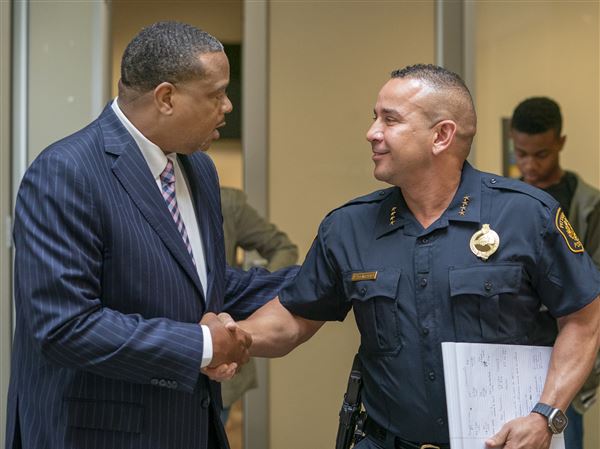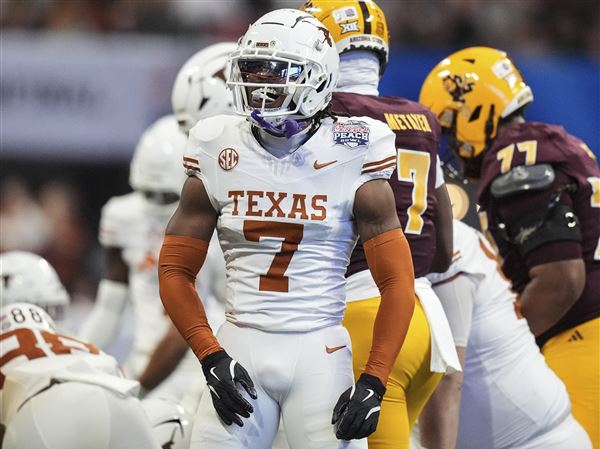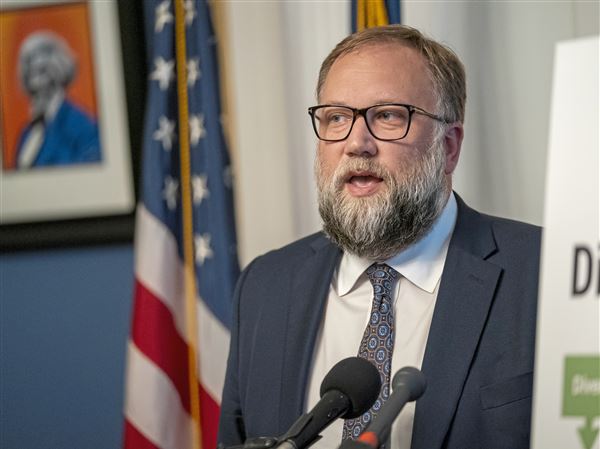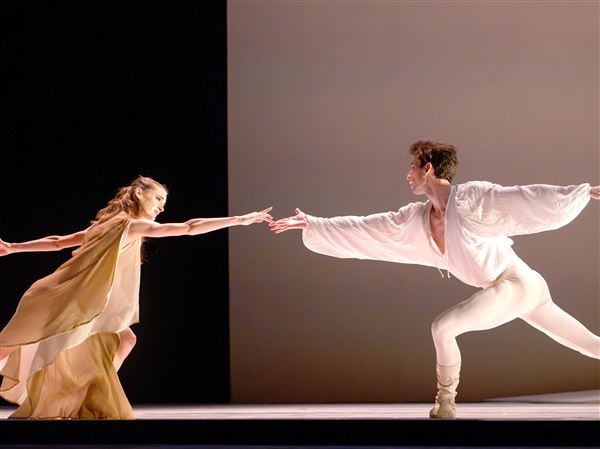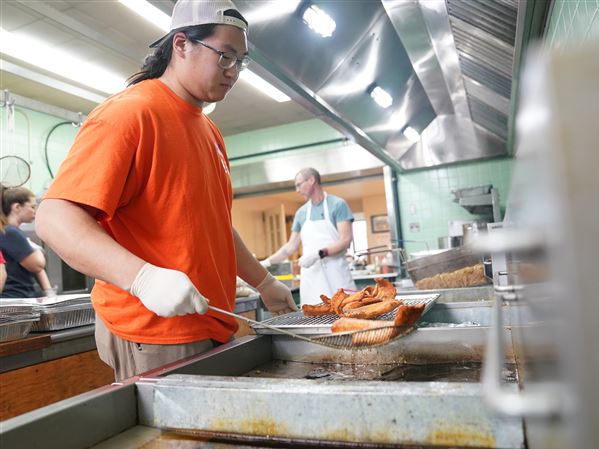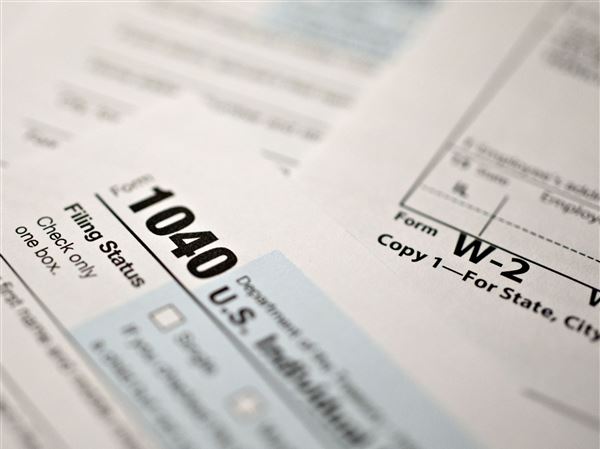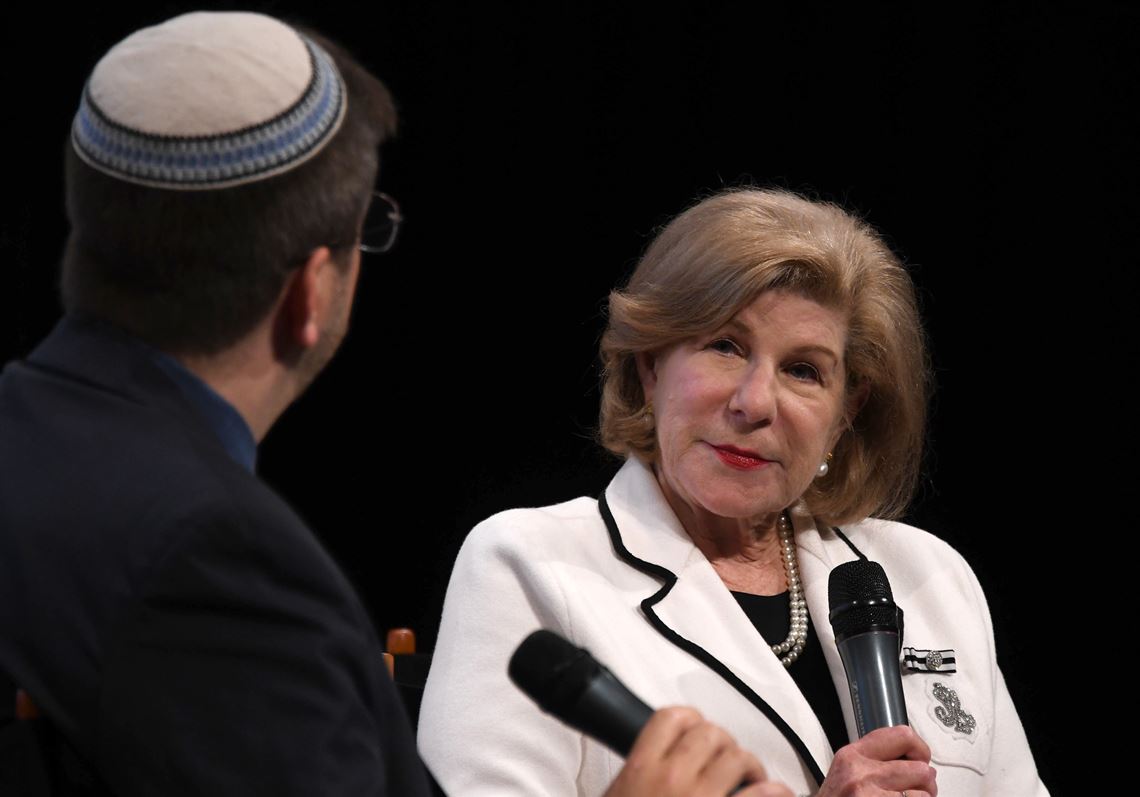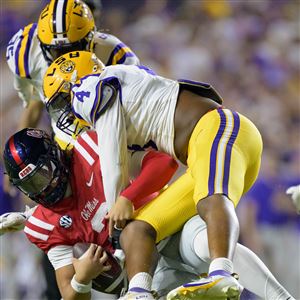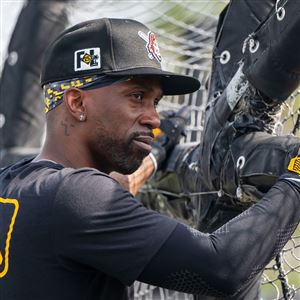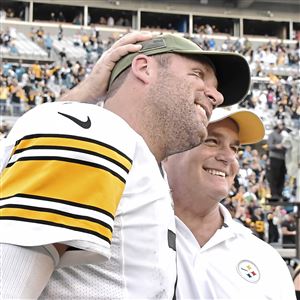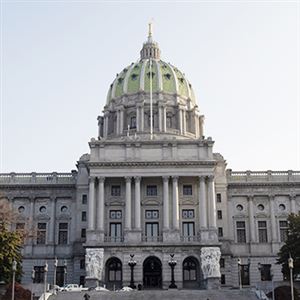A longstanding consensus on how to accommodate religious beliefs in government settings is breaking down as the U.S. Supreme Court appears poised to overturn longstanding precedent and allow greater role of religion in public life.
Those were some of the observations of Nina Totenberg, the longtime legal affairs correspondent for NPR, at a forum on “The First Amendment for the 21st Century,” held Monday at the Jewish Community Center of Greater Pittsburgh in Squirrel Hill.
“There are all kinds of gradations in between” the views that the government should prohibit any religious expression in public settings and that it should allow as much as possible without government actually endorsing religion, she said.
Such views often conflict in battles over creche displays on public property, or the right of a prisoner or government worker to defy a dress code or hair code by wearing a turban or a beard for religious reasons.
A hardening of positions in politics and the public, she said, is echoed on the Supreme Court, which has a 5-4 conservative-liberal split.
“I don’t think we see a lot of gradations on the court at the moment,” said Ms. Totenberg. “We see more of one view or the other.”
She said conservatives and others seeking a greater role for religious expressions have “been working for a long time to tear down some of that wall of separation between church and state.” They believe the Supreme Court has actually hurt religious pluralism by “stacking the deck for non-religious points of view,” she said.
She was one of the keynote speakers at the event, sponsored by the JCC’s Center for Loving Kindness. The other was Michael McConnell, a Stanford Law School professor who has argued numerous cases before the Supreme Court.
Mr. McConnell said America had a long history of celebrating its religious diversity in public places rather than having strictly secular model in which people are expected to keep their religious views private.
But he agreed with Ms. Totenberg that views on the subject are hardening on either side. He said the gathering Monday, which drew scores of clergy of various faiths as well as other civic leaders, can serve as an antidote by building bridges.
“It's not a matter of law,” he said. “It's a matter of the hearts and minds. So I do think that the First Amendment contributes to the culture of religious freedom in America. But it is not the whole thing. ... If we got to the point where we only depend upon the courts for the protection of religious liberty, then we will have lost half the game.”
Mr. McConnell spoke favorably of recent Supreme Court decisions allowing Hobby Lobby not to provide employees contraceptive care under an Obamacare mandate and allowing a cake artist to refuse to decorate a wedding cake for a same-sex couple.
While Mr. McConnell depicted those cases as involving sexual morality, one audience member objected, saying they were matters of sexual orientation or gender identity.
Mr. McConnell replied that artists should not be forced to create statements against their own consciences and that corporations should be able to take moral stands of all kinds, such as when corporations refuse to do business in states that restrict LGBT rights.
Both speakers agreed that such cases are increasingly facing a showdown on the ideologically divided Supreme Court.
Ms. Totenberg said the Supreme Court may reconsider a 1990 decision that declared if a law applies to everybody, then no one can disobey it for religious reasons. Congress and states responded with laws requiring governments to find ways to accommodate religious beliefs, but a bipartisan consensus around that law broke down as liberals saw them being used to discriminate on religious grounds over sexual orientation or identity.
And although the 1973 Roe v. Wade case legalizing abortion was largely based on a different amendment, the 14th, the issue has been fiercely charged by conflicting religious beliefs.
“They won’t strike down Roe in one fell swoop,” she predicted. But she offered 60-40 odds that, case by case, the justices will reduce abortion rights to the point where Roe is either explicitly or effectively repealed.
And when that happens, there will be a “country divided” between states with ready access to abortion and those without it, she said.
Peter Smith: petersmith@post-gazette.com or 412-263-1416; Twitter @PG_PeterSmith.
First Published: September 24, 2019, 12:02 a.m.
